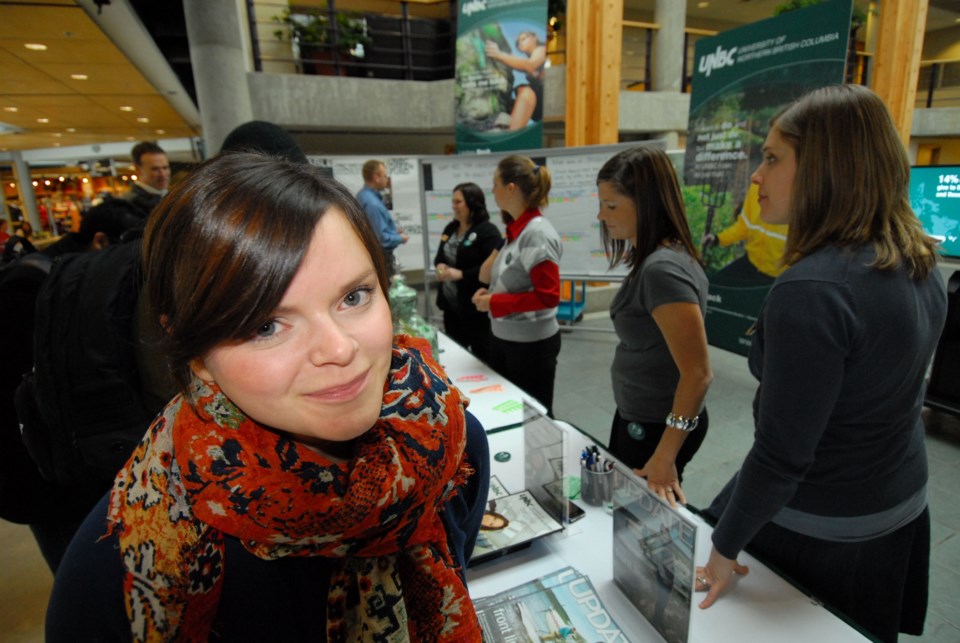Philanthropy is defined as the practice of helping people who are less well-off than those who are providing the help.
That helping hand is prevalent among the student population at UNBC, where an estimated 20 per cent of students are receiving some kind of financial aid through scholarships (which are awarded based on academic achievement) and bursaries (whose distribution is based on financial need).
"Ten years ago it was one in 10 students at UNBC who benefited from financial assistance from donors and that's now up to one in five," said Kathie Scouten, UNBC's development manager, on hand to help UNBC celebrate National Philanthropy Day Tuesday at the campus's Canfor Winter Garden.
"The university is growing more mature and developing relationships with donors, who have contributed more to students over time. It's a pretty significant increase that we've seen."
UNBC received a total of about $1.5 million in donations last year and Scouten said close to 70 per cent of that money was used to fund student awards. The rest paid for library materials, greenhouse gas environmental initiatives, a First Nations centre and UNBC's athletics programs.
Scouten pointed to the Northern Medical Program Trust as an example of a well-organized campaign to help UNBC medical students pay the cost of their education. Several endowments left to the university now fund annual awards, which have made a significant impact on UNBC and its ability to attract and retain students.
"The Northern Medical Program Trust raised a lot of commitment, not just from organizations and companies but also from communities that target for their own giving," said Scouten.
"We know that financial support and awards are the No. 1 reason students have chosen to come to UNBC and we've also got research that shows awards are really important to keep them here after their first year especially."
Local initiatives, like the Northern Timberwolves Athletic Association, through sales of Wolf Club memberships, have provided scholarships, bursaries, travel assistance and uniforms for student athletes at UNBC. Those travel costs will increase significantly next season for the UNBC basketball and soccer teams when they join the CIS as part of the Canada West Universities Athletic Association.
"We feel we have a very generous donor base here that will support UNBC moving to that next level," Scouten said. "We really need to continue to engage donors and create new relationships and support sports student awards moving forward."



